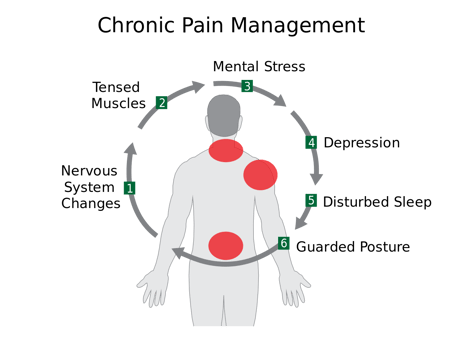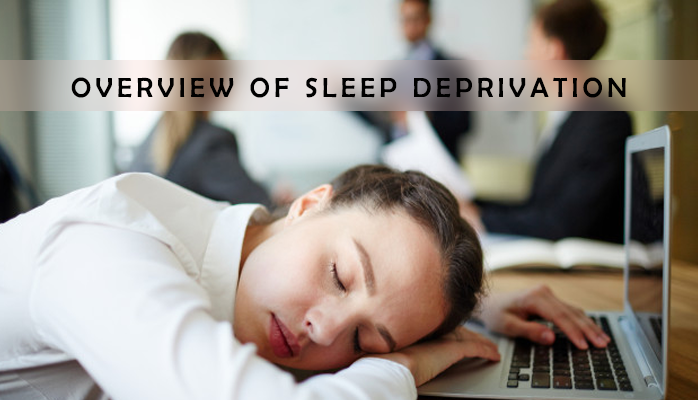What is Sleep Deprivation
Sleep deprivation is a condition that occurs when you are deprived of sleep. It can be a long-term or short-term deficiency, known as chronic or acute sleep deprivation. Regardless of the duration, sleep deprivation can have a significant impact on your overall well-being and the people around you. Take a moment to reflect, did you get enough sleep this week?
Sleep deprivation has a profound effect on various aspects of your life, including physical health, cognitive performance, emotional well-being, athletic abilities, and overall medical health.
The criteria for sleep deprivation differ from person to person, depending on three fundamental factors: age, lifestyle, and individual needs. As we age, our sleep patterns and requirements change. Different lifestyles may necessitate more or less sleep, especially for those who work irregular hours, such as shift workers. Additionally, there is the unique aspect of each individual's sleep needs, where a certain amount of sleep is required simply because it is what you personally need.
Sleep deprivation can affect individuals of all ages, from children to adults, and can have both known and unknown causes. It can range from severe to moderate or minor in its impact.
Signs of Sleep Deprivation
Symptoms of chronic sleep deprivation can be subtle or marked, depending on both the severity of sleep deprivation and the personality who is affected. But often, symptoms are noticeable by the sleep deprived and their loved ones. Here are common symptoms.
Lower performance
People with chronic sleep deprivation perform lower in most areas of life:
- Sense of happiness and well being
- Work
- Academics
- Athletics
- Workouts
- Relationships
- Weight maintenance
They tend to make people feel, as is commonly described, “off”, “like a different person”, and “not like myself.” This is because chronic sleep deprivation does change your behavior, to the point where you really are behaving very differently than the well-rested version of yourself does.
Fatigue and exhaustion
Fatigue and exhaustion are usually the most obvious signs of chronic sleep deprivation. This takes the form of:
- Chronic daytime fatigue and lethargy
- Trouble staying awake at the wheel
- Headaches
- Inability to really go work out or play in athletics
- Sudden sleep attacks during the day (the overwhelming desire to sleep, can’t keep your eyes open)
- Clinical exhaustion where the body begins to break down (hair falling out, for example)
Cognitive dysfunction
Chronic sleep deprivation can also significantly reduce your cognitive ability in the following ways:
- Chronic brain fog
- Trouble concentrating or staying on topic
- Trouble learning
- Trouble with memory, such as forgetting simple things
- Slower, less efficient, and worse at performing cognitive tasks, such as at work
Usually, cognitive dysfunction will be noticed by teachers and employers if it becomes bad enough.
Emotional dysfunction
Getting good sleep plays an important role in emotional management. Chronic sleep deprivation can seriously disrupt this, and lead to:
- Depression
- Chronic anxiety
- Chronic irritability and anger issues
- Inability to manage and respond healthily to stress
- Other mood troubles
Sexual problems
Physical and emotional energy also play important roles in maintaining libido. Sleep deprivation can steel libidic energy for men and women alike, leading to reduced sex drive and sexual trouble.
For men, chronic sleep deprivation can have even more impact. Men replenish testosterone during sleep. Without testosterone, men are at great risk for suffering from erectile dysfunction and further reduced sex drive.
Studies show that sleep problems often lead to sexual problems for men. One study, for example, found that in 531 men, patients who slept 4 hours or less had half as much testosterone as patients who sleep 8+ hours. Other studies have been remarkably consistent with their findings, with several other studies citing the ED sleep apnea link at 40%, 46%, 61%, 64%, and 69%.
Causes of Sleep Deprivation
There are enumerable number of reasons why you might be sleep deprived. But sleep deprivation in people tend to have similar types of causes.
Sleeping disorders
Sleep disorders such as insomnia, obstructive sleep apnea, parasomnias, and circadian rhythm disorders lead to long term, chronic sleep deprivation – chronic sleep deprivation that can be severe. Treating these sleep disorders often stops the sleep deprivation.
Medical conditions, pain, and biology
 Many medical conditions such as PTSD, depression, and disease, including the medications and surgeries used to treat these conditions, can cause chronic or acute sleep deprivation.
Many medical conditions such as PTSD, depression, and disease, including the medications and surgeries used to treat these conditions, can cause chronic or acute sleep deprivation.
Also, the link between chronic pain and sleep deprivation is startling. Do you live with pain, especially in the last week? If so, consider these facts [2015 Sleep in AmericaTM Poll]:
- People with chronic pain had an average nightly sleep debt of 42 minutes (i.e. getting 42 minutes less sleep than they should)
- People with acute pain in the last week had an average sleep debt of 14 minutes
- 65 percent of people with no pain reported good or very good sleep quality
- 45 percent of people with acute pain in the last week reported good or very good sleep quality
- 37 percent of people with chronic pain in the last week reported good or very good sleep quality
- 23 percent of people with chronic pain reported being diagnosed with a sleep disorder by a doctor, compared to just 6 percent of pain free people. It’s quite a sobering statistic
If you live with chronic pain, do the above statistics look familiar?
Finally, our bodies undergo natural biological and hormonal changes as we age that affect sleep. Elderly populations, for example, are the most likely of any demographic to report sleep problems.
Lifestyles
Certain lifestyles and lifestyle decisions impact sleep. Any of the following are highly correlated with sleep loss:
- Shift work, such as shift work sleeping disorder
- Drinking too much coffee
- Drinking alcohol before bed
- Using electronics and screens before bed (blue light inhibits sleep)
- Foregoing sleep in order to play video games, party, etc.
Lifestyle factors can cause chronic or acute sleep deprivation – it all depends on the lifestyle factor causing the deprivation is chronic or temporary.
- Natural changes (we sleep differently as we get older)
- Here in Alaska, the extreme lighting conditions also can cause chronic sleep deprivation
Stress
Life stressors can play a significant role in both chronic and acute sleep deprivation. Common stressors include:
- Loss of parent, spouse, or child
- Divorce
- Stressful job
- PTSD
- Chronic financial stress
Environment
Your environment can greatly dictate sleep quality. Is your room dark, quiet, clean, and peaceful? If not, it may be impacting sleep.
Also, here in Alaska we face a natural environment that is particularly unsuited for sleep because of the extreme lighting conditions. These extreme lighting conditions do not offer us the natural queues needed prompts sleep or wakefulness – and many of us have to take extra measures (i.e., light therapy) to combat sleep problems in Alaska.
Treating Sleep Deprivation
Treating sleep deprivation requires consistent, high quality sleep, potentially for a long period of time. Sleep studies show that getting one or two long nights of sleep does not remove the effects of sleep deprivation.
Also, treatment for your sleep deprivation will likely be different than another person’s – causes, lifestyle factors, and other factors affect your sleep patterns and those need to be accounted for in order to help you get back on a healthy sleeping schedule.
Nonetheless, there are a few things you can do to maximize your sleep potential:
- Create a calm, relaxing bedroom
- Set a bedtime routine
- Do not use screens (TV, laptop, cellphone) in the hour before bed
- Limit coffee and alcohol consumption
- Keep a sleep diary and look for patterns
If you live in Alaska and are chronically sleep deprived, start the road to a better night’s sleep by taking this free online sleep test.


